- Austausch & Vernetzung
- Wissen & Lernen
- Advocacy
- Unsere Themen
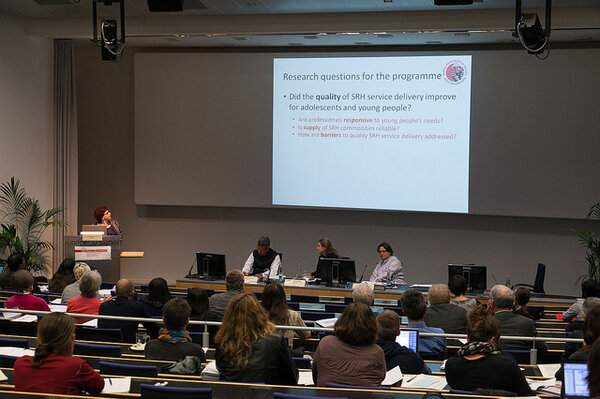
Photographer: Børje Müller, Dipl.FotoDesigner, Basel (www.boerjemueller.com)
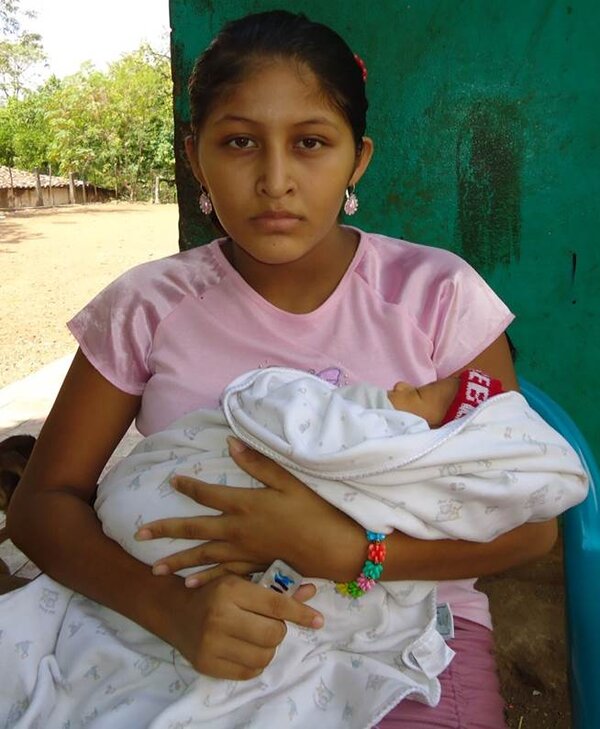
Teenageschwangerschaften verhindern
TagesWoche (TagesWoche, 10. November 2014) "Sexualbildung und Familienplanung in Drittweltländern sind wichtige Themen, gerade im Kontext der anstehenden Volksabstimmung über die Ecopop-Initiative. Doch wie sieht die Präventionsarbeit vor Ort aus? Davon erzählt Sandra Dominguez aus Honduras im Interview." (Photo: zVg/SRK)

Bericht über das MMS Symposium 2014
TagesWoche (TagesWoche, 6. November 2014) "Wie können Teenager-Schwangerschaften in der Dritten Welt vermieden werden? Mit Ecopop? Solche Fragen diskutierten Experten am Mittwochabend am Treffen von Medicus Mundi."
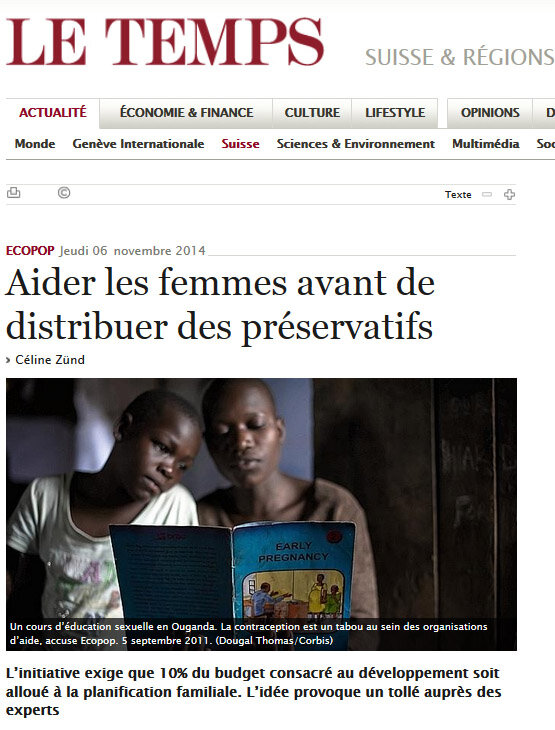
Article du quotidien "Le Temps" sur le Symposium 2014 du Réseau Medicus Mundi Suisse
Le Temps (Le Temps, 6 novembre 2014) "L’initiative exige que 10% du budget consacré au développement soit alloué à la planification familiale. L’idée provoque un tollé auprès des experts." Article du quotidien "Le Temps" sur le Symposium 2014 du Réseau Medicus Mundi Suisse.
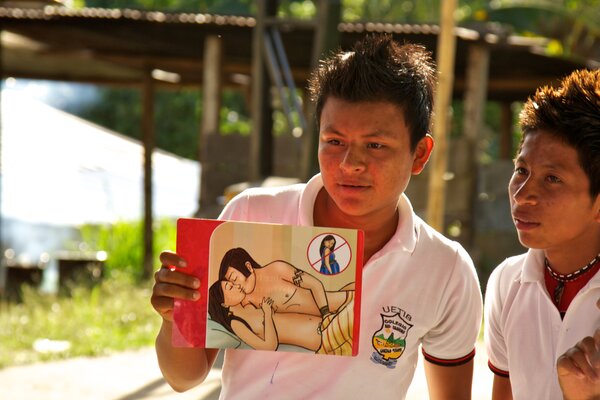
MMS Symposium „Nicht ohne uns!“: Jugendliche und die sexuelle und reproduktive Gesundheit in der internationalen Zusammenarbeit
MMS (MMS/Basel, 5. November 2014) Expertinnen und Experten aus der ganzen Welt haben an einer Tagung des Netzwerks Medicus Mundi Schweiz dargelegt, wie der Zugang zu sexueller und reproduktiver Gesundheit für Jugendliche verbessert werden kann, um etwa Teenagerschwangerschaften zu verhindern. Die Ecopop-Initiative werteten sie als kontraproduktiv und gefährlich.
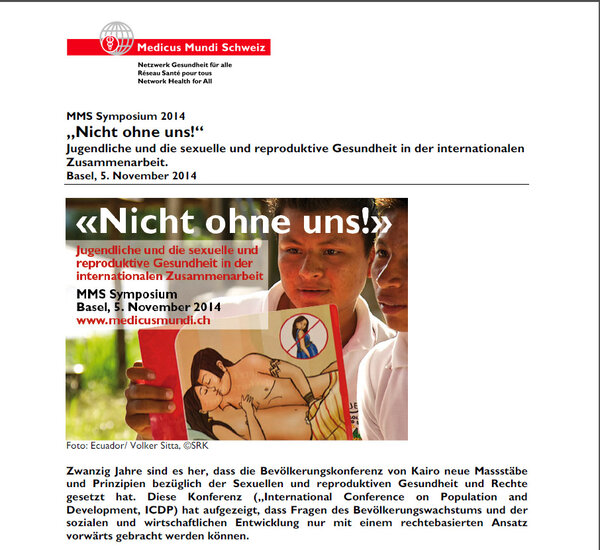
MMS Programm des Symposium und organisatorische Hinweise als pdf zum Ausdrucken.
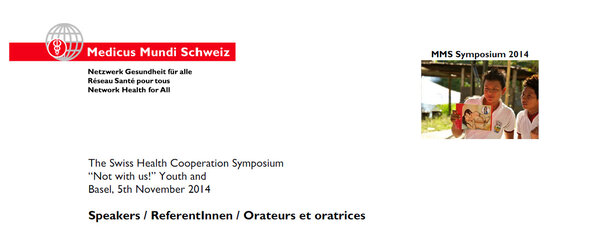
Die Kurzbiografien der Rednerinnen und Redner.
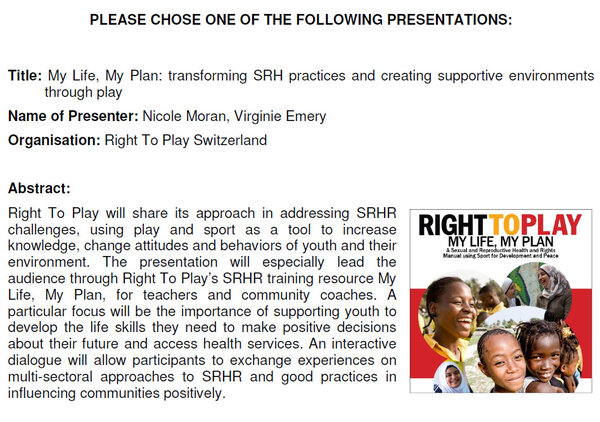
The Forum session gives the audience the possibility to actively engage into a discussion and to exchange knowledge and practices in smaller groups. It allows YOU to dive into one of the topics. In the pdf you find short abstracts for the four Forum session.
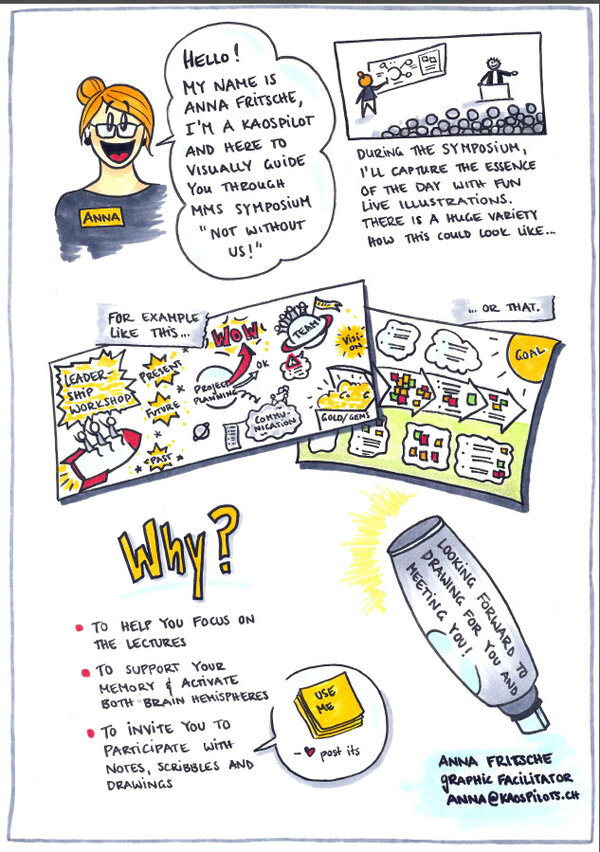
WHO Fact Sheet N°364; Udated September 2014
Global overview of adolescents' health and health-related behaviour WHO, 2012
Policy Brief 2012
Adolescents, both unmarried and married, face many sexual and reproductive health risks stemming from early, unprotected, and unwanted sexual activity. Key factors underlying this issue are lack of access to sexuality education, and to accessible, affordable, and appropriate contraception. There is an urgent need to implement programmes to meet the contraception needs of adolescents, while dismantling the current barriers to adolescents from accessing services.
WHO guidelines, 2011
The WHO guidelines, Preventing early pregnancy and poor reproductive outcomes among adolescents in developing countries, provide both a call to action and directions for future research on: • preventing early pregnancy: by preventing marriage before 18 years of age; by increasing knowledge and understanding of the importance of pregnancy prevention; by increasing the use of contraception; and by preventing coerced sex; and • preventing poor reproductive outcomes: by reducing unsafe abortions; and by increasing the use of skilled antenatal, childbirth and postnatal care.
WHO, 2012
This Guidebook sets out the public health rationale for making it easier for adolescents to obtain the health services that they need to protect and improve their health and well-being, including sexual and reproductive health services. It defines ‘adolescent-friendly health services’ from the perspective of quality, and provides step-by-step guidance on developing quality standards for health service provision to adolescents. Drawing upon international experience, it is also tailored to national epidemiological, social, cultural and economic realities, and provides guidance on identifying what actions need to be taken to assess whether appropriate standards have been achieved
WHO 2009
This guidebook is designed to assist national and district health managers, as well as managers and staff at health facilities, to assess the quality of their services for adolescents and young people in relation to the list of adolescent-friendly characteristics. This assessment will help managers and staff identify where their services and systems are already “adolescent-friendly” and will suggest where and how improvements can be made
Today's 1.8 billion adolescents are more exposed to harmful alcohol consumption, sexually transmitted diseases, and other risks than in the past, and face other new challenges such as social media. The Lancet's second Series on Adolescent Health, launched to coincide with the 45th Session of the United Nations Commission on Population and Development, argues that it is now time to put the young person, not the specific issue, centre stage. Four papers analyse the role of adolescence as a foundation for future health, the social determinants of adolescent health, the potential of the worldwide application of prevention science, and the current availability of data on 25 suggested core indicators in all countries. • Adolescence: a foundation for future health • Adolescence and the social determinants of health • Worldwide application of prevention science in adolescent health • Health of the world's adolescents: a synthesis of internationally comparable data
Prof Andre Tylee MD, Dagmar M Haller MD, Tanya Graham MSc, Rachel Churchill PhD, Lena A Sanci MD The Lancet, Volume 369, Issue 9572, Pages 1565 - 1573, 5 May 2007
For developmental as well as epidemiological reasons, young people need youth-friendly models of primary care. Over the past two decades, much has been written about barriers faced by young people in accessing health care. Worldwide, initiatives are emerging that attempt to remove these barriers and help reach young people with the health services they need. In this paper, we present key models of youth-friendly health provision and review the evidence for the effect of such models on young people's health. Unfortunately, little evidence is available, since many of these initiatives have not been appropriately assessed. Appropriate controlled assessments of the effect of youth-friendly health-service models on young people's health outcomes should be the focus of future research agendas. Enough is known to recommend that a priority for the future is to ensure that each country, state, and locality has a policy and support to encourage provision of innovative and well assessed youth-friendly services.
George C Patton , David A Ross, John S Santelli, Susan M Sawyer, Russell M Viner, Sabine Kleinert The Lancet, Volume 383, Issue 9915, Pages 385 - 386, 1 February 2014
A quiet revolution has finally brought recognition to the significance of health in the quarter of the world's population who are adolescents and young adults. Three decades of calls for action on adolescent health in policy and in academic publications have substantially increased in intensity in the past 18 months. The reason is simple: adolescents are central to every major current challenge in global health.
Haller DM, Narring F, Chondros P, Pejic D, Sredic A, Huseinagic S, Perone N, Sanci LA, Meynard A. Springerplus. 2014; 3: 319
Young people face many barriers in accessing health services that are responsive to their needs. The World Health Organization has led a call to develop services that address these barriers, i.e. youth-friendly health services. Addressing the needs of young people is one of the priorities of Foundation fami, an organisation working in collaboration with the Swiss Federal Department of Development and Cooperation and Geneva University Hospitals to develop quality family medicine services in Bosnia and Herzegovina. This paper describes the design of a trial to assess the effectiveness of a multifaceted intervention involving family medicine teams (primary care doctors and nurses) to improve the youth-friendliness of family medicine services in Bosnia and Herzegovina.
UNFPA, 2012
The development of sub-Saharan Africa is closely linked to the wellbeing of its young people. With more than one-third of the total population aged 10 to 24, this large number of young people represents an opportunity to accelerate economic growth and reduce poverty, but only if nations make the right investments in current and future generations
Over 40% of IPPF’s resources are devoted to addressing the needs of young people. Under 25s account for 50% of new HIV infections, and girls and young women are the most vulnerable group. Access to and understanding of contraceptives among young people is limited. Many young pregnant women resort to unsafe abortions. The need for education, information and services for young people is one of IPPF’s most pressing sexual health priorities.
Youth-friendly service delivery is about providing health services based on a comprehensive understanding of what young people in any given society or community want and need. It is also based on an understanding of, and respect for, the realities of young people’s diversity and sexual rights.
The Girls Decide series dramatizes the sexual and reproductive health and rights experiences of 6 young girls in Albania, Argentina, Bangladesh, Indonesia, Swaziland and Syria. They are personal stories, openly, honestly and stylishly told, which demonstrate how timely advice, support and assistance can make a radical difference to young women’s lives.